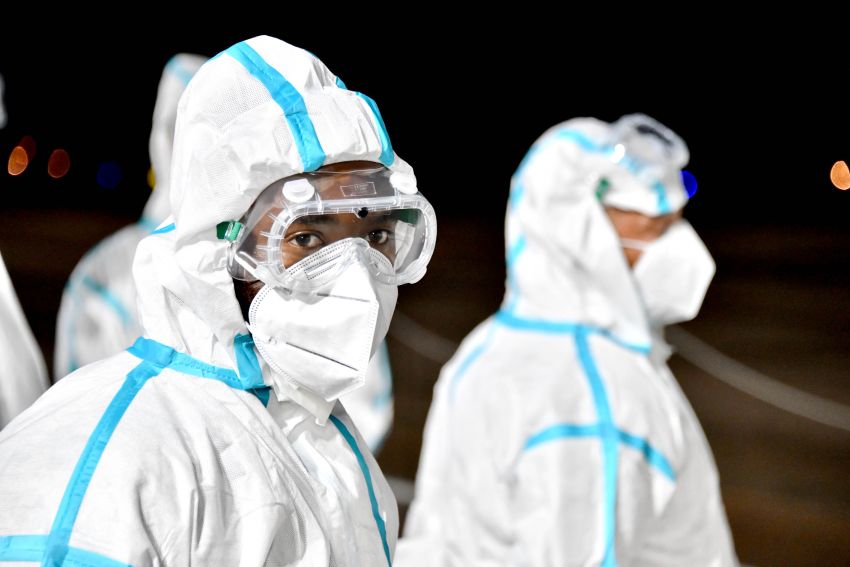
One of the great successes of the Cuban Revolution has been the Cuban government’s long-standing commitment to health.
Cuba has one of the lowest rates of child mortality, lower than the United States.
Cuba’s commitment extends beyond its own borders. The nation is renowned for its medical diplomacy, with thousands of specialist staff — members of Cuba’s Henry Reeve Brigade — regularly being sent abroad to help other nations tackle natural disasters, medical emergencies and other crises.
Cuba’s response to the COVID-19 threat was swift and effective.
A “prevention and control” plan, prepared in January last year, included training medical staff, preparing medical and quarantine facilities, and informing the public (including tourism workers) about symptoms and precautions. The country also has a very good contact-tracing and testing regime.
Cuba’s response to COVID-19 has been much better than many other countries including the US.
To date, Cuba has recorded about 72,503 COVID-19 cases and 415 deaths, according to data compiled by the Johns Hopkins University COVID Resource Center.
By comparison, the US had about 30.4 million COVID-19 cases and 550,000 deaths as of March 1 — more than 60 times Cuba’s per capita deaths.
Nevertheless, the cost to Cuba of the COVID-19 pandemic has been considerable. Firstly, the country’s gross domestic product shrunk by 11% last year, and things were made much worse by the US economic blockade and former president Donald Trump’s increased sanctions.
After keeping COVID-19 at bay for most of last year, Cuba experienced a surge of new infections this year, after international flights resumed in November.
In February alone, there were 23,093 new cases, almost twice as many as occurred in the whole of 2020. Once again, Cuba responded quickly to the changed circumstances, and brought the situation under control. Indeed, Cuba’s COVID-19 situation mirrors that in many other countries.
Cuba began investing in biotechnology and medical science in the 1980s, largely in response to the US blockade. Its medical research industry is now quite advanced, with more than 30 research institutions and manufacturers established, including three laboratories equipped and staffed to run virus tests.
Cuba created the Meningitis-B vaccine in 1985 and later vaccines for Hepatitis-B and Dengue Fever. It was the first country to eradicate mother-to-child HIV transmission.
Removed from the world’s prevailing vaccine distribution network, Cuba is the only nation in the Latin American and Caribbean region that has developed its own vaccines against COVID-19.
It now has four vaccine candidates, despite the fact that the US blockade has hindered the country’s vaccine efforts.
Soberana-1, Soberana-2 and Abdala are injectable vaccines, administered intramuscularly, while Mambisa is a nasal spray vaccine. However, all four vaccines work in a similar way, even though each one has a different formulation.
Soberana-1 entered the second phase of trials in February, and Mambisa is still in the first phase of trials. Meanwhile, Soberana-2 and Abdala, both of which showed a high immune response against COVID-19 are in the third phase of trials, and are being administered to tens of thousands of adult volunteers in regions with a high incidence of COVID-19.
If Soberana-2 proves successful, Cuba plans to export it at low cost after the national vaccination efforts have finished. A second phase three trial of Soberana-2 is planned for Iran, as part of a partnership between the New York-based Finlay Institute and Iran’s Pasteur Institute.
Cuba’s biomedical production sector has also created drugs for treating COVID-19 infection.
Interferon, an antiviral agent developed in Cuba but produced in China, is useful in preventing many COVID-19–infected patients from becoming critically ill. The Cuban anti-inflammatory drug Jusvinza, used for treating autoimmune diseases, and Cuba’s monoclonal antibody Itolizumab, which moderates exaggerated immune responses, are also effective in reducing COVID-19 deaths.
The COVID-19 pandemic has been hard for Cuba. The country is currently experiencing its worst economic outlook since the end of the Cold War. On the plus side, Cubans are very resilient and resourceful.
[Ian Ellis-Jones is a member of Socialist Alliance.]